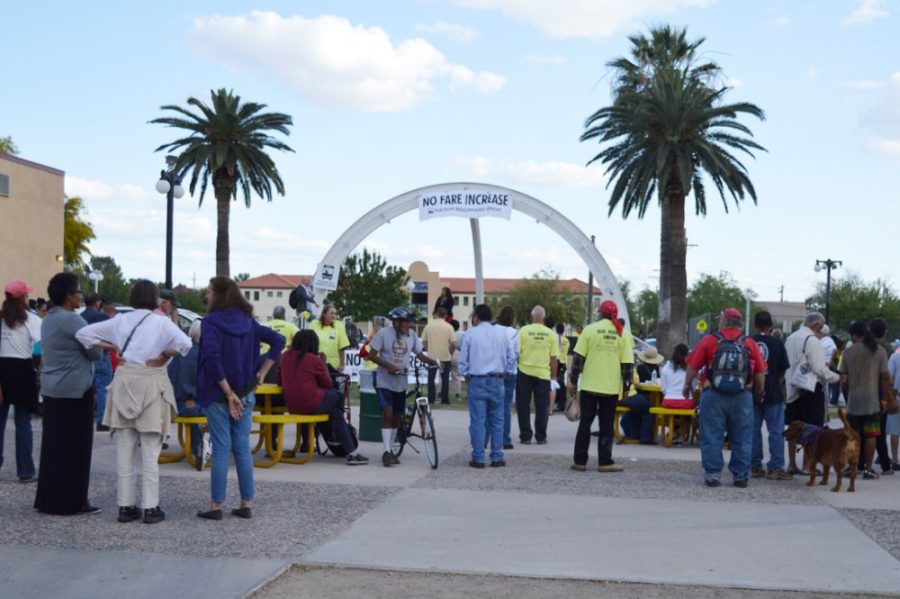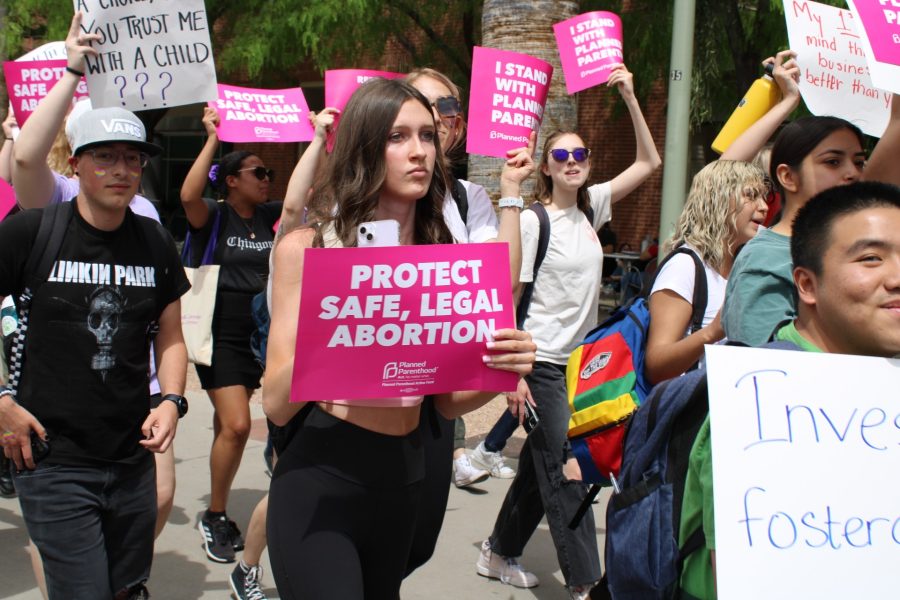A party for bus riders hosted by the Tucson Bus Riders Union took place Friday evening at Armory Park to give the public a chance to speak their minds about any positive ideas or issues with Tucson bus transportation.
The Tucson Bus Riders Union has worked around the community for the past three years to maintain bus fare costs, prevent bus routes from being cut, keep the Regional Transportation Authority from taking control of the bus system and made sure Tucson developers did not take ownership of the Ronstadt Transit Center downtown.
Susan Willis, TBRU member, talked about how public transportation will help eliminate carbon dioxide, methane and other greenhouse gases. She added that emissions need to be reduced drastically in order to keep the earth’s global temperature from rising.
“There will be no cars or buses on a dead planet,” Willis said.
She challenged everyone to go out and recruit a friend or family member and personally help him or her ride the bus.
“Be a bus mentor,” Willis said. “Help be a savior of all life forms on Earth.”
Bob Cook, a new member of TBRU from the Broadway Coalition, brought up the economic issues regarding how resources are limited and the need to support a transportation system that puts mass transit, pedestrians and bike riders first.
“Bus ridership was viewed as something that two percent of the population did, but in the future, it is going to be the majority,” Cook said. “We’ve been subsidizing cars for 50 years, and it’s time to change that.”
Cook is from Colombia and said he feels proud to be born in a city outside of the U.S. that took the initiative decades ago to look at the future and ask, “Is it going to be cars, or is it going to be people?”
According to Cook, Tucson has a problem because people don’t know many of the rules regarding public transportation. He noted that in order to increase the number of commuters using public transportation, the community has to create a system that allows people to come into the central city and park cheaply in non-congested areas.
Jarrett Walker, transit planner, rode the bus since the fourth grade in Oregon, and no one ever mentioned to him that buses aren’t for everyone. He said he meets a lot of people in the suburbs who think they know what a bus rider is supposed to look like and have all kinds of attitudes about what buses are about.
For the past 22 years, he has been trying to create public transit systems that work for everyone.
According to Walker, low-income people make riding the bus easier and that makes it possible for others to join.
“Transit starts with low-income people because they are willing to use it first,” Walker said. “Everything that gets built in this city is being built on what you began.”
_______________
Follow Amber White on Twitter.









